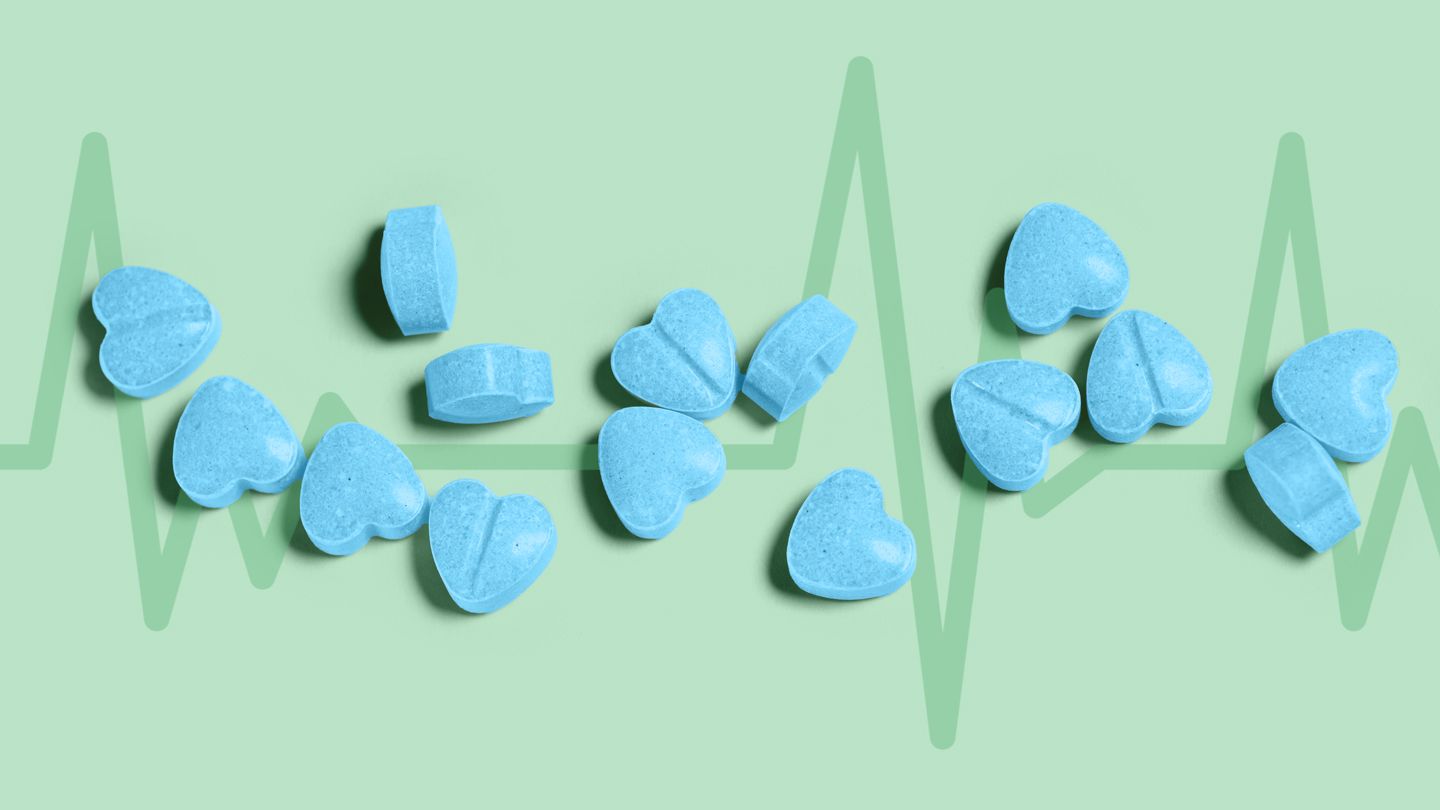If you have an abnormal heart rhythm or another heart condition like high blood pressure, a beta-blocker may be a key part of your treatment plan. Beta-blockers, such as atenolol, metoprolol, and propranolol, slow your heart rate and make it beat less forcefully by impeding the effects of the fight-or-flight hormone adrenaline.e60dc2a1-f33c-4a05-9b50-8e3e8e5976299bcbca68-e920-4e67-b7c0-2ddef00d0565 “In many heart conditions there’s an imbalance of fight-or-flight activity, which can weaken the heart muscle and cause rhythm disturbances. Beta-blockers help correct this imbalance,” says Michael Lloyd, MD , an electrophysiologist and professor of medicine at Emory University Hospital in Atlanta. In addition to treating cardiovascular and circulatory conditions, beta-blockers may also be used to manage anxiety, glaucoma, and migraine.e60dc2a1-f33c-4a05-9b50-8e3e8e597629c920cd05-5ee0-49ab-9370-abef42525f37 In order to reap the biggest benefits of beta-blockers and minimize their possible side effects, there are certain things you should — and shouldn’t — do.
Do: Tell Your Doctor About Other Medications You’re Taking Medication Interactions While many medications work well with beta-blockers, some can cause dangerous drug interactions or make beta-blockers less effective. Calcium channel blockers and inhaled bronchodilators like albuterol are some of the biggest offenders.e60dc2a1-f33c-4a05-9b50-8e3e8e5976295755d764-41ce-4db4-ade1-087ad2c41b85e60dc2a1-f33c-4a05-9b50-8e3e8e597629f3fc9395-4702-43c1-9cc4-a46b2ccb26e2 Beta-blockers may also interact with certain antidepressants like selective serotonin reuptake inhibitors (SSRIs), nonsteroidal anti-inflammatory drugs (NSAIDs), and even supplements like curcumin, ginkgo biloba, and St. John’s wort.e60dc2a1-f33c-4a05-9b50-8e3e8e597629a747b8d7-3024-4d0d-8f26-ce130a443825 Before you start taking a beta-blocker, share with your doctor a complete list of every medication and dietary supplement you’re taking. “Electronic medical records allow for you to confirm medications, but most clinics will double-check with you during a visit,” says Dr. Lloyd. His recommendation: Take pictures of your medication and supplement bottles with your phone to show your doctor. If you’d rather bring the medications into your appointment, be sure to bring the bottles rather than just the pills in a pillbox or pill organizer. “A given medication can have a variety of shapes, sizes, and colors, which might lead to confusion,” says Lloyd.
Don’t: Stop Taking Beta-Blockers Abruptly Discontinuing Use Going off a beta-blocker cold turkey may raise your risk for heart attack and other heart problems.e60dc2a1-f33c-4a05-9b50-8e3e8e59762900ae9b31-e692-485a-bbff-7ca1a43a1547 It can also cause uncomfortable symptoms, including chest pain and heart palpitations.e60dc2a1-f33c-4a05-9b50-8e3e8e59762998d0c711-d349-4b63-99c8-8fc28c477daf Stopping beta-blocker use suddenly can cause your heart rate to spike, says Jennifer Wong, MD , cardiologist and medical director of noninvasive cardiology at MemorialCare Heart and Vascular Institute at Orange Coast Medical Center in Fountain Valley, California. If you need to stop taking your beta-blocker for whatever reason, let your doctor know so you can come up with a plan together for cutting back your use slowly to give your body necessary time to adjust. In most situations, Dr. Wong says a person should gradually reduce their dose by 50 percent every few days.
Do: Take Extra Care if You Have Diabetes Diabetes If you have diabetes , you need to keep a close eye on your blood sugar while taking beta-blockers. Beta-blockers are one of several types of cardiovascular drugs that appear to increase risk of hyperglycemia (high blood sugar) due to their effects on the body’s insulin sensitivity.e60dc2a1-f33c-4a05-9b50-8e3e8e597629b66263c1-9bf4-4732-822d-4fad6099ebf5 Beta-blockers can also mask symptoms that signal low blood sugar, such as rapid heart rate, making it more challenging to manage your diabetes successfully.e60dc2a1-f33c-4a05-9b50-8e3e8e597629f76a22f4-bdb5-47a6-b6e1-96b834dd0577 “I tell my patients to increase the frequency of their blood sugar monitoring, especially during the first few weeks on beta-blockers,” says Lloyd. “Occasionally, diabetic medications need to be adjusted.”
Do: Take Your Medication at the Same Time Every Day Medication Timing When and how often you take your medication depends on the type of beta-blocker your doctor prescribes as well as other factors. But sticking to a consistent dosing schedule helps your beta-blocker work as efficiently as possible, says Wong. There are a few tricks you can use to remember to take your beta-blocker on time every time. For instance, you can take your medication at the same time as another daily activity, such as brushing your teeth, or set a recurring alarm on your phone.e60dc2a1-f33c-4a05-9b50-8e3e8e5976296c79df04-45f6-4606-96d9-01a153074c58 You and your doctor can work together to figure out the best dosing times for you. “If [you] feel fatigue or dizziness from beta-blocker use, it’s best to take it at night,” says Wong. “If the beta-blocker is being used to help with anxiety, it may be better to take it in the morning.”
Don’t: Double Up After a Missed Dose Missing a Dose Skipping doses of any prescribed medication, including beta-blockers, can make it less effective, but that doesn’t mean if you forget to take a dose that you should take twice as much the next time around. Taking more than the prescribed amount of your beta-blocker at any given time could slow your heart rate too much or cause weakness, lightheadedness, low blood pressure, or confusion. In severe cases, a person may go into shock (a result of extremely low blood pressure).e60dc2a1-f33c-4a05-9b50-8e3e8e597629fd7d4f4a-77ff-42d2-9742-f5047d7f12a0 So what should you do if you miss a dose? Wong says if you remember shortly after your typical medication time, take the missed dose at that point. If it’s getting close to the time of your next dose, she recommends forgetting about the missed dose and just taking your usual dose at your usual time. If you have questions or aren’t sure what to do, reach out to your healthcare team for help.
Do: Take Side Effects Seriously Side Effects It’s not uncommon to experience side effects like fatigue, dizziness, nausea, or constipation when you start taking a beta-blocker. Some people also notice that they gain some weight, have cold hands or feet, or experience mild sexual dysfunction or feelings of depression.e60dc2a1-f33c-4a05-9b50-8e3e8e597629f7e90b26-4790-465e-afec-2a3ffd413872e60dc2a1-f33c-4a05-9b50-8e3e8e597629349b08e2-fbce-4d3c-bc70-9003fc3e935a “Luckily, most of these side effects get better after a few weeks,” says Lloyd. But you should let your doctor know if the side effects aren’t getting better or if they’re disrupting your daily life, he adds. Together you can find ways to manage these effects so you can continue to take your beta-blocker. Contact your doctor right away if you experience severe or unusual side effects like shortness of breath, chest pain, a racing or pounding heart, fainting, or multiple episodes of dizziness or lightheadedness.e60dc2a1-f33c-4a05-9b50-8e3e8e5976299a7b31b9-f2ed-4ea5-94e9-ec06ed0c9f76
Don’t: Drink Too Much Alcohol Alcohol It’s important to limit your alcohol consumption while taking a beta-blocker. Alcohol can amplify the blood pressure–lowering effects of beta-blockers, leading to very low blood pressure and symptoms like dizziness, lightheadedness, and fainting.e60dc2a1-f33c-4a05-9b50-8e3e8e5976292c5dbee7-d044-45f4-920a-b5761f7157e5 Alcohol may also make it more difficult to control your heart condition and high blood pressure. “Long-term alcohol use can raise blood pressure as well as induce arrhythmias,” says Wong. While some medical authorities say moderate alcohol consumption (no more than two drinks per day for men and no more than one drink per day for women) is okay if you’re on a beta-blocker, Wong recommends people with heart conditions and high blood pressure avoid drinking altogether.
The Takeaway Beta-blockers are important for the treatment of hypertension and several other conditions, but to maximize their benefits and minimize their possible side effects, there are certain things you should (and shouldn’t) do. Before you start taking a beta-blocker, share with your doctor a complete list of every medication and dietary supplement you’re taking to avoid any medication interactions. If you have diabetes, keep a close eye on your blood sugar, especially during your first few weeks on beta-blockers, to avoid swings outside the normal range. It’s important to take beta-blockers exactly as prescribed and at the same time every day. Skipping or doubling doses can be unsafe. Track any side effects you experience so you can share them with your doctor.
Resources We Trust Mayo Clinic: Beta Blockers: How Do They Affect Exercise?Harvard Health Publishing: The Many Roles of Beta BlockersCleveland Clinic: Do Beta-Blockers Work for Anxiety?American Heart Association: Types of Blood Pressure MedicationsBritish Heart Foundation: Beta Blockers: How Do They Work and Do They Have Side Effects?
Read the full article here
Leave a comment




